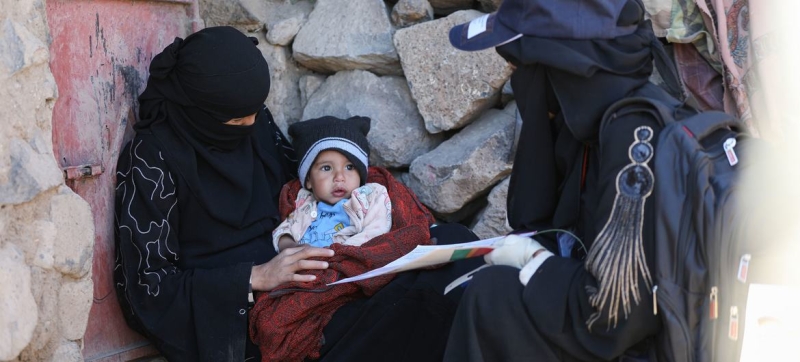
Alsari village in Ibb province, Yemen. Security Council: ‘Military adventurism’ is pushing Yemen towards full-scale war UN
During a briefing to members of the UN Security Council on Thursday, UN Special Envoy for Yemen Hans Grundberg expressed his disappointment that key targets demanded by the country’s population had not been achieved by Ramadan. He stressed that Yemenis need a ceasefire throughout the country, as well as improved living conditions.
Grundberg reiterated that his mediation work in Yemen has become more difficult.
“Despite the fact that after the escalation of the war in Gaza we tried to shield the peace process from regional events, I repeat that in reality what happens in the region affects Yemen, otherwise “What happens in Yemen can affect the entire region,” he explained.
Risk of full-scale war
The Special Envoy highlighted the challenges posed by recent Houthi rebel attacks on shipping in the Red Sea and Gulf of Aden.
Read also:
UN Secretary General on airstrikes in Yemen: the parties must respect international law
According to him, these attacks, along with retaliatory strikes from the United States and Great Britain, have worsened the already tense situation and raised fears of a resumption of large-scale conflict.
He warned that with the emergence of new players and interests, parties to the conflict in Yemen are likely to change their negotiating plans and in the worst case scenario, they may decide on “military adventurism”, which will push the country back into a state of war.
International obligations
Grundberg said Yemen needs a ceasefire and a conflict resolution that includes the voices of Yemeni women and civil society.
He stressed that sustained international efforts and diplomatic engagement are essential to overcome regional turmoil and advance the peace process in Yemen. The special envoy called on the Security Council to be united in its support for a political settlement under the auspices of the UN.
“I will rely on your collective diplomatic action to help me navigate the mediation process amid the regional chaos.” , he told representatives of the Security Council.
Humanitarian situation
In turn, the Director of Operations of the UN Office for the Coordination of Humanitarian Affairs Issues (OCHA) Eden Wosornu provided the Security Council with an update on what is happening in Yemen.
According to her, in recent months the food situation has deteriorated sharply, which poses a real threat to the lives and well-being of millions of people, especially women and children. According to OCHA, hunger has increased by 11 percent since November, and nearly half of Yemen’s children under five now suffer from moderate or severe stunting.
Wosornu attributed these problems to the ongoing conflict, economic crisis and severe funding shortfalls, which forced organizations to reduce aid distribution, especially in regions under Houthi control.
Fund requirements
OCHA stressed that for most Yemenis, food insecurity is a matter of unaffordable prices rather than the availability of goods in markets.
She called on donors to fund the World Food Program’s (WFP) $230 million request over the next five months, and noted the need to find sustainable solutions to address the root causes of the crisis.
Vosornu shared her recent visits to Yemeni communities, where she heard from local women about their desire for economic empowerment. Rising regional tensions and escalating conflicts in the Red Sea threaten to undermine what little progress has been made, a UN spokeswoman said.
“Attacks on ships can have direct and indirect consequences livelihoods of thousands of people in coastal communities that depend on fishing,” she warned.
